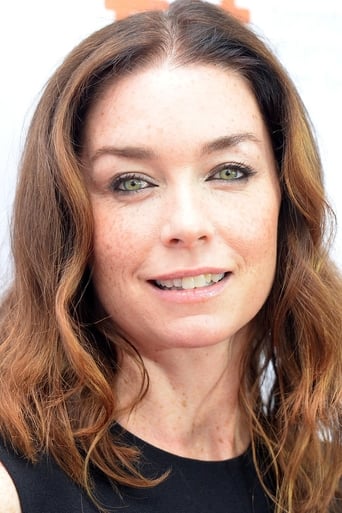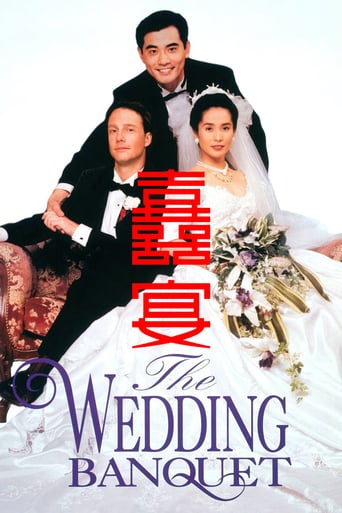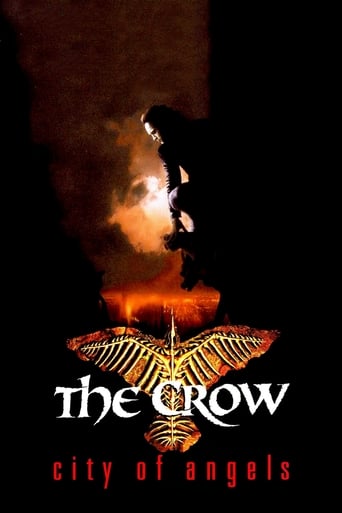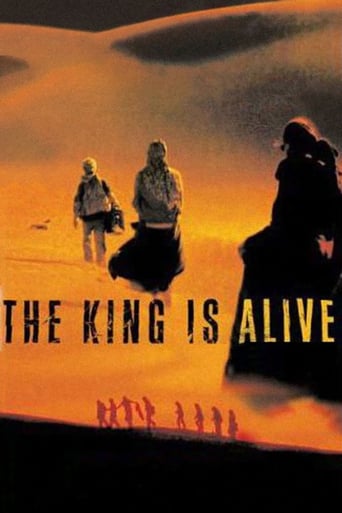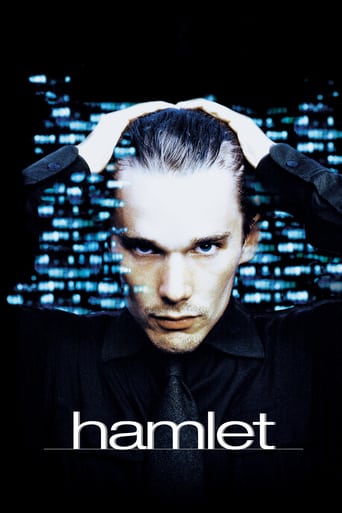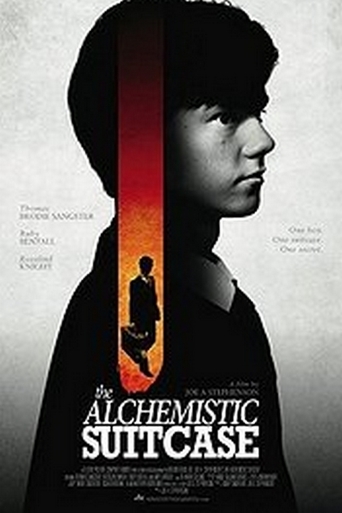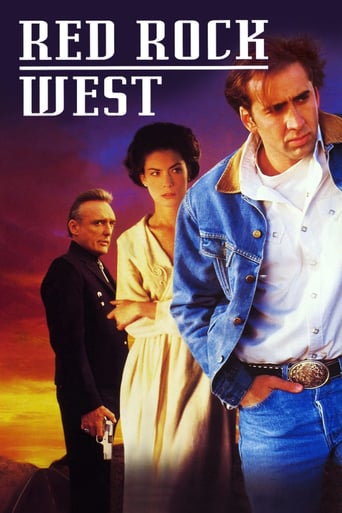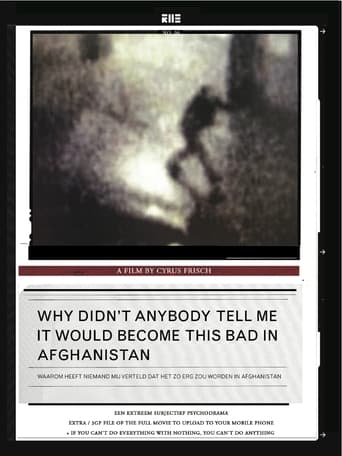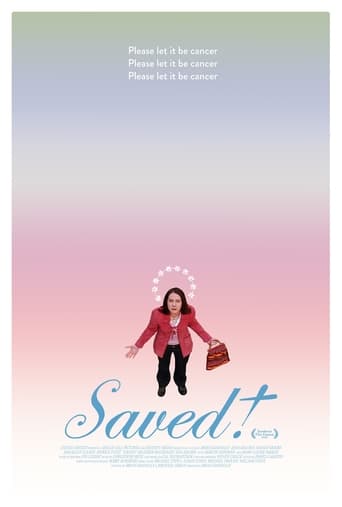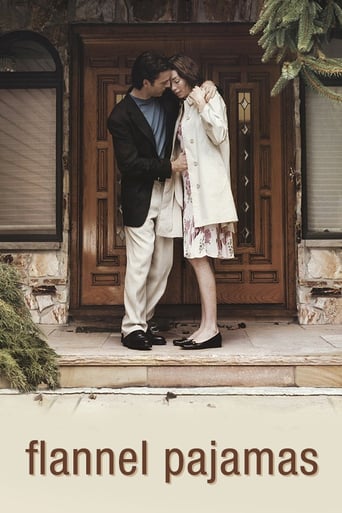
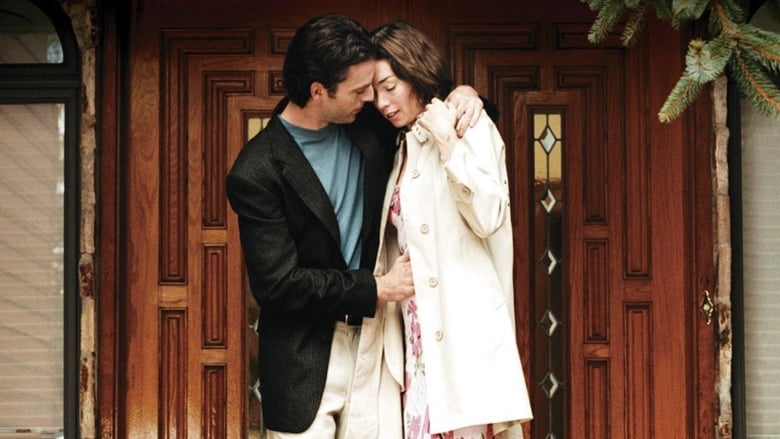
Flannel Pajamas (2006)
A study of a relationship that starts quickly, burns bright, and then gets rocky, not from any one thing, but from an accumulation of civilization and its discontents. Stuart is glib and generous, Nicole is shy and forthright. Is love enough to see them through?
Watch Trailer
Cast


Similar titles
Reviews
With Christmas coming up,I started to search around for a DVD to get as a gift for a family friend.With him being a big fan of the Mumblecore film genre,I spotted a title on Amazon Uk,which he had expressed an interested in seeing a few years ago,which led to getting set to wear my pjs.The plot:Meeting up on a blind date arranged by a mutual friend, Stuart Sawyer and Nicole Reilly find themselves quickly falling in love for each other.Desperate to spend as much time with each other as possible,Reilly moves out of her low-rent flat into Sawyer's apartment,and the couple soon decide to get married.Whilst the relationship was one built on love,trust & intimacy,Reilly and Sawyer begin to struggle in accepting the flaws in each of their personalities.View on the film:Showing Stuart Sawyer & Nicole Reilly's relationship go from light and breezy to detected and frigid, Justin Kirk and Julianne Nicholson both give extraordinary performances.Appearing naked in the psychologically-heavy sex scenes,Kirk & Nicholson brilliantly use their body language to show each others vulnerabilities,with Kirk showing Sawyer not being able to keep his controlling side,whilst Nicholson gradually puts Reilly's foot down on the power-play in the relationship.Placing the psychological aspect displayed in the sex scenes at the centre of the relationship,Kirk & Nicholson superbly make minor flaws that Sawyer and Reilly hint at first,to become dominating factors in the relationship.Filmed on an extremely low-budget,writer/director Jeff Lipsky and cinematographer Martina Radwan give the title a raw,intimate appearance,with Lipsky and Radwan using long,static takes which allow the audience to feel the disintegrating atmosphere in the relationship.Despite having a 2 hour running time,Lipsky displays a real precision in avoiding any of the "traditional" scenes in Hollywood Romance movies,thanks to Lipsy focusing on quiet,personal moments that allow for Lipsy to subtly change the tremendous, naturalistic dialogue,as Sawyer & Reilly begin to focus on the flaws in their relationship,and begin to end their flannel pyjama game.
This movie reminded me so much of "The Breakup". Take away the funny characters in that movie and add down to earth problems of work expectancies and the couples boredom in their relationship as it plays out in Flannel Pajamas. There is nudity in the first half of the movie, but as their relationship matures and as the husband can't see the small subtleties and their is no more nude scenes, just another breakup.I liked this movie better than the breakup because it handles the relationship and the breakup in a very realistic way. There are no smartypants here, no grand reunion of the couple, just the will of one of them to get things to work. Nothing that this charming actor can do.
They tried to make a grown-up film about why people fall in and out of love. They took a chance in a daring way to deal with a fundamentally adult story. They should be congratulated for that. The thing is...they failed.The biggest problem with this film is the writing and editing. They characters are unsympathetic (needy in a "worst of Woody Allen" way). They tell you what the characters are, but the don't back it up with deeds. They just say the words and you're supposed to believe it. They should have shown it.Instead, too much time is spent in silent prolonged emptiness that is meant to be profound. Did the editor know what the term pacing means? If every dull scene is prolonged by silence from minute one to minute one-hundred twenty...you lose the meaning of the pause. It's suppose to have a tempo.The simple act of dropping the first and last five frames of every scene would have made this film almost enjoyable and taken 15 minutes off the running time. One scene where a fully nude Julianne Nicholson stands in front of a row of windows goes on so long that I out of sheer boredom spent the time counting the freckles on her body. I counted 27,342 myself. You are free to do your own count. Counting Julianne Nicholson's freckles (as adorable as they are) doesn't make a film.If someone knows a good editor, have them take a crack at this picture. They couldn't help but improve it.
Flannel Pajamas, which concerns a New York thirty-something mixed (Jewish-Catholic) couple whose marriage doesn't make it, is that rare thing, a smart, serious American relationship movie. It's not going to get much exposure, and critics have been too hard on it, but they've also acknowledged that it's something quite special: a film about couples life that doesn't go for laughs but for accuracy, and that gives you as much to think about as an intelligent play. It's sad if that doesn't work for the American movie audience, as is implied by the trade-oriented critics saying The History Boys doesn't work on film. What's wrong with transferring a smart play to film, if it's more than okay to transfer a dumb novel? But this isn't a transfer. It's the direct product of the keen observations of Jeff Lipsky, a leading indie film producer, who both wrote and directed. Earlier this year we saw Trust the Man, a relationship movie made by Julianne Moore's husband Bart Freundlich. That was glossier and smoother, it had bigger names in it and it was very watchable, but as a study of relationship and marriage it wasn't half as thought-provoking as the sometimes painfully real Flannel Pajamas, and it was ruined by a flashy, preposterous ending, while Lipsky's ending is subtle and touching.Criticisms have been heaped upon Lipsky's film. Reviewers have said it's overwritten, too talky, has too many themes and characters to keep track of; that the latter part doesn't have enough dramatic momentum; that the Montana homestead of the wife's family looks too East Coast and too perfect while the husband's condo is too cold and empty; that the movie has no distinctive look. Maybe. And maybe not. I'm not sure those requirements would be held as necessary or seen as quite so damning in the French or Swedish films this resembles. But the critics have dwelt so much on what they see as flaws that they've doomed the film to a low critical rating perhaps with the exception of Salon's Andrew O'Hehir, who calls it a "masterpiece" and the "finest relationship film of the year." He may be right on the latter count.Let's look for a minute at the pluses. To start with, Stuart Sawyer (Justin Kirk) and Nicole Reilly, (Julianne Nicholson ), the two main characters, who're seen from every angle (including frontally nude) feel authentic in every scene. Whether they're in or out of sync in their relationship, they play together equally well. Dialogue and action have a Seventies-style frankness: we're much closer to John Cassavetes and Ingmar Bergman than to Nora Epron or Woody Allen. Glib romantic comedy has been traded in for keen psychological and moral observation. And it's a welcome change.The successive scenes each examine the couple's dynamic from another angle. When Stuart goes home to Montana with Nicole, it's a sequence without jokey clashes à la last year's The Family Stone. Stuart gets to know some people a little bit and some not at all, just as in real life. He doesn't get the full force of Nicole's mother's honesty and disapproval till Nicole has a miscarriage late in the film (Rebecca Schull is terrific in the scene). Before that, the wedding is finely handled, with speeches by Nicole's best friend Tess (Chelsea Altman) and Stuart's brilliant, suicidal brother Jordan (Jamie Harrold) that feel completely right.Lipsky doesn't set up the dissolution of the marriage obviously. This is a movie about relationships that may make you do some personal soul-searching, even as you go back over the sequences of scenes in your mind. You're not sure at first why the marriage fails. You don't know the moment when it happens. But you know what it's about: Nicole's become mopey and sad, and Stuart's too selfish. While pledging support for her catering business with his life savings, he not only makes her wait two years to have a baby, and then wants to stall after that; he doesn't even want to let her have a dog. As he admits to his father, Stuart was probably too self-centered to succeed in a marriage from the start. Nonetheless obviously Stuart charms us more, as we saw him charm Nicole on their first date; but his flaws were present from the first, masked by the charm. His job as a promoter consists, he frankly states, of inventing complete lies about plays, and Nicole eventually realizes he's a talker, not a listener. He really is selfish, and though he keeps saying over and over he loves Nicole, you always have doubts. She is far more honest, but perhaps was too fragile to judge him carefully. Both have screwed up families, his Jewish, divorced, and including the nutty brother; hers Catholic and alcoholic.As the movie unfolds over its two hours, you often get a chance to think about the contrast between the successive stages of first date, courtship, lustful sex, romance, marriage, separate masturbation, and final estrangement. Tellingly, both isolation (Stuart, perhaps surprisingly for a Broadway promoter, has few friends or business-related social life) and too much closeness (he has trouble handling Nicole's big family) are equally hard for the couple to handle. You gradually realize they didn't have what it takes to make the transition from romance into family life, and that, in short, they weren't ever a good match. The pathway to this realization is an interesting one.



